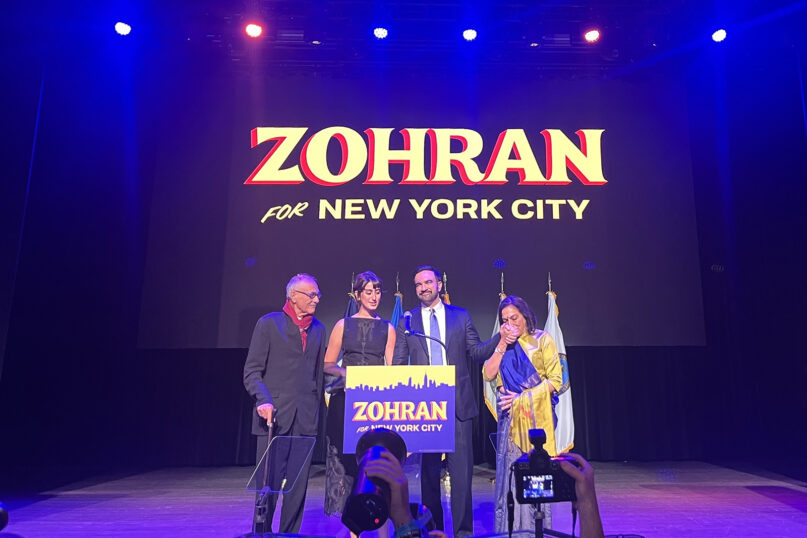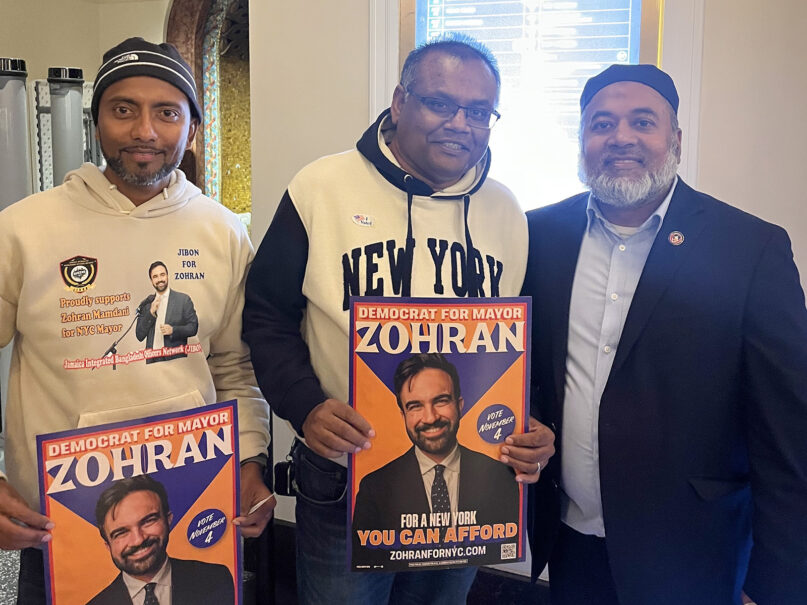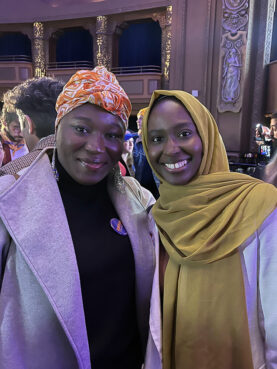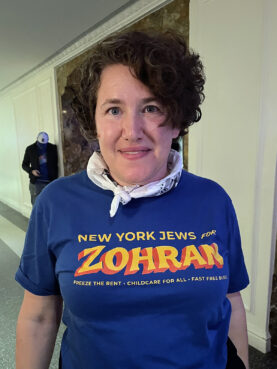NEW YORK (RNS) — After the vote was in and Zohran Mamdani, the 34-year-old state assemblyman, had made history in becoming America’s largest city’s first Muslim mayor-elect, the comparisons to another seemingly out-of-nowhere political star began.
“Just like Barack Obama, who was an empowerment to the Black community, Zohran is an empowerment to the Muslim community,” said Juhaib Choudhury, the president of the Muslim Community Forum, at Mamdani’s election party on Tuesday (Nov. 4).
But Mamdani, who won 50.4% of the vote to defeat former New York Gov. Andrew Cuomo and Republican activist Curtis Sliwa, didn’t only bring Muslims to the polls to vote for him. Like Obama, Mamdani fashioned a broad coalition to achieve a generational turnover, one that, as Mamdani said from the stage of the Brooklyn Paramount, “toppled a political dynasty.”
He did it with the help of a broad range of progressive faith groups, including anti-Zionist organization Jewish Voice for Peace and Jews for Racial and Economic Justice, both pivotal in organizing Jewish supporters. Rabbi Jason Klein, of the progressive Beit Simchat Torah congregation in Manhattan, said Mamdani’s election offers an opportunity for New York’s diverse communities to come together and seek to understand one another.
“I’m feeling optimistic about the possibilities of our city, for all the communities in our city,” said Klein before adding he appreciates Mamdani’s commitment to “recognize real antisemitism and to fight against it. … More broadly, I appreciate the commitment to every single community in New York.”

In his victory speech, Mamdani expressed his desire to unify the city and represent the country’s largest Jewish community. “We will build a City Hall that stands, steadfast, alongside Jewish New Yorkers and does not waver in the fight against the scourge of antisemitism,” he said.
But Mamdani’s coalition was also composed of young progressives and working-class New Yorkers, drawn by a program focused on affordability. As he took the stage behind a pulpit adorned with his landmark bright orange “Zohran for New York City” logo, he called his victory the beginning of a new era.
“From as long as we can remember,” Mamdani said, “the working people of New York have been told by the wealthy and the well-connected that power doesn’t belong in their hands.”
Young New Yorkers of every stripe were attracted to Mamdani’s unwavering support for Palestinians in Gaza while aligning with the Muslim community’s interests, though Mamdani’s condemnation of the war in Gaza and of Israeli Prime Minister Benjamin Netanyahu’s government earned him accusations of antisemitism from some Jewish New Yorkers. In parts of the heavily Orthodox Jewish neighborhood of Borough Park, Mamdani trailed even incumbent Mayor Eric Adams, who had dropped out of the race in October.
But Mamdani, a Twelver Shiite Muslim born in Uganda, refused to give up on any faith or ethnic group, often reaching them at their houses of worship. Many in those communities answered by organizing under such banners as Jews for Zohran, Hindus for Zohran and Shias for Zohran.

His deepest support came from Muslim New Yorkers, who voiced their feelings of marginalization in New York’s political landscape before Mamdani’s win. In his victory speech, the mayor-elect talked about dodging Islamophobic attacks from political opponents. “I am Muslim. I am a democratic socialist, and most damning of all, I refuse to apologize for any of this,” said Mamdani.
Mamdani peppered his speech with slang from the streets of Astoria, the neighborhood he has represented in the State Assembly since 2010, and made cultural references to his South Asian roots. “We will fight for you because we are you, or as we say on Steinway, ‘Ana Minkum wa Ilaykum,’” said Mamdani, referring to the busy Astoria commercial street and citing an Arabic adage meaning “I am from you and return to you.”
After dedicating his term to these communities, he exited the stage to the Bollywood tune “Dhoom Machale.”
The neighborhoods of Bay Ridge and Sunset Park, in Brooklyn, and Astoria, in Queens, all home to large Muslim and Arab American communities, went for Mamdani with 49.4%, 58.1% and 76.7% of the vote, respectively. In predominantly South Asian Jackson Heights, the mayor-elect obtained 56.5% of the votes.
Ali Zaman, the owner of Little Flower, an Astoria coffee shop favored by the new mayor, said Mamdani’s victory is significant for Muslims in the city, who, like Zaman, came of age after the 9/11 attacks. “There was a lot of shame around being Muslim, but now, Alhamdulillah, we have someone who’s a really good representative of our religion and our people,” said Zaman, using the Arabic phrase for “praise God.”


Mamdani’s election is a “very important moment,” said AjiFanta Marenah, the vice president of New York’s Muslim Democratic Club, where Mamdani made his political debut. “The first Muslim mayor and someone who we’ve seen come out openly and condemn Islamophobia, it means a lot because we’ve been targeted for a long time,” said Marenah, who mobilized voters in the Bronx.
Original Source: